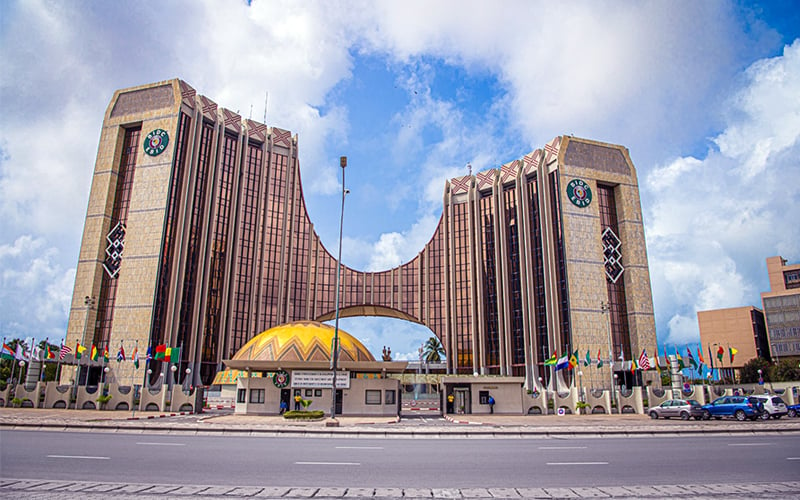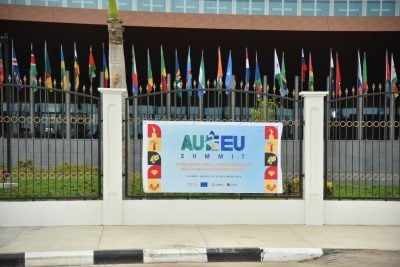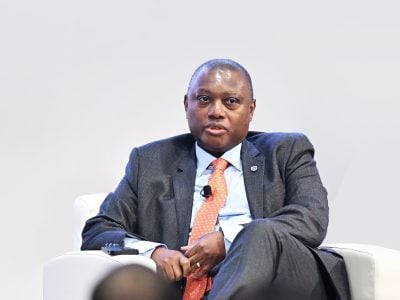This article was produced with the support of ECOWAS Bank for Investment and Development
During its 92nd Ordinary Session held on 30 June 2025, the Board of Directors gave the green light to fund initiatives valued at €174 million and $125 million, reinforcing the institution’s critical role in transforming the region’s development landscape.
These newly sanctioned projects span education, renewable energy, agriculture, manufacturing and transport infrastructure. Together, they reflect EBID’s ongoing commitment to fostering industrialisation, enhancing livelihoods, and promoting sustainable development across its member states. The move also reaffirms the Bank’s alignment with key global priorities, particularly the United Nations Sustainable Development Goals (SDGs), notably SDG 4 on Quality Education, SDG 7 on Affordable and Clean Energy, and SDG 9 on Industry, Innovation and Infrastructure.
At the heart of this new investment wave is a firm belief that economic prosperity must be rooted in inclusive development. EBID’s funding decisions are not just financial commitments—they are interventions aimed at delivering tangible social impact, creating jobs, and building the foundations for long-term regional resilience.
One of the flagship initiatives approved is a €50 million project in Togo that will see the construction and equipping of six new technical and vocational training centres. Spearheaded by Planet One, this ambitious endeavour aims to prepare the country’s youth for careers in high-demand industries. With a projected 3,480 learners passing through the system each year, the project is set to dramatically enhance the skills base of the Togolese workforce. It is expected to boost productivity and competitiveness while addressing youth unemployment, a persistent challenge throughout the region.
Meanwhile in Côte d’Ivoire, a $25 million project has been approved to support the import of 400,000 tonnes of clinker by the Société de Ciment de Côte d’Ivoire. Cement is a key component in the construction sector, and this project is designed to ease bottlenecks in local supply, lower costs, and support the country’s rapid urbanisation and infrastructure build-out. By stabilising inputs in a strategically important industry, EBID’s funding is expected to have a multiplier effect across the broader economy.
Further north, in the Republic of Guinea, EBID has signed off on two significant development initiatives. The first is a €28.9 million programme aimed at modernising four agricultural high schools. This initiative is part of a broader strategy to revitalise the rural economy and equip young people with the technical skills needed for employment in agribusiness and food systems. By targeting education in agriculture—a sector that employs a majority of the population—the project hopes to curb youth migration, improve food security, and contribute to rural development.
The second Guinean project is focused on energy access. EBID has approved €95.16 million to construct three hydroelectric micro-power stations at Poukou, Bolokoun, and Biwbaw. Developed in partnership with SOGEOH, the plants will collectively generate 30 MW of renewable electricity, providing clean, reliable power to underserved communities. This investment not only addresses Guinea’s critical energy deficit but also promotes green energy as a viable pathway to inclusive development. The availability of power is expected to stimulate small businesses, attract investment and improve quality of life in rural areas long neglected by national grids.
Nigeria, the region’s economic heavyweight, will also benefit from EBID’s latest round of financing. A $100 million investment has been approved for the Lagos-Calabar coastal motorway project. Stretching over 47.7 kilometres, this strategic corridor is designed to connect nine Nigerian states, improve access to key seaports, and open up isolated agro-industrial zones. The project is anticipated to play a pivotal role in unlocking Nigeria’s domestic market, while also creating conditions for cross-border trade and regional value chain development. Once completed, the coastal highway will support both national integration and the broader objectives of the African Continental Free Trade Area (AfCFTA).
These latest commitments bring EBID’s cumulative investments across the ECOWAS region to over $5 billion, a milestone that underscores the Bank’s status as a central player in West Africa’s development architecture. Over the years, EBID has transitioned from a policy bank into a dynamic, responsive institution capable of driving real economic change. Its investments have evolved to cover a wide spectrum of sectors, blending infrastructure finance with social impact in a way that supports both growth and equity.
As regional leaders increasingly prioritise home-grown solutions to development challenges, EBID’s role has become more important than ever. With external financing becoming more selective and conditional, the availability of regional capital for high-impact projects is vital. EBID’s approach—grounded in partnership, sustainability, and regional ownership—positions it as a critical enabler of West Africa’s aspirations.
Speaking after the session, EBID’s President Dr. George Agyekum Donkor reaffirmed the institution’s commitment to transforming the sub-region through strategic investments. “These projects are a testament to our resolve to build a stronger, more resilient ECOWAS,” he said. “Our financing supports not just infrastructure but also the people who make our region vibrant and dynamic. By investing in education, energy, agriculture and trade, we are laying the groundwork for a prosperous and sustainable future.”
As West Africa faces a complex set of challenges—from climate change to demographic pressures and global economic volatility—there is a growing consensus that targeted investments in infrastructure, human capital, and renewable energy are essential to securing the region’s long-term future. EBID’s recent approvals reflect a nuanced understanding of these imperatives, combining immediate impact with long-term transformation.
Looking ahead, the success of these projects will depend on effective implementation, strong governance, and continuous stakeholder engagement. But the signal from EBID is clear: West Africa’s development cannot wait, and the tools to drive it are increasingly being mobilised from within the continent.
In the months and years to come, the region will watch closely as these projects unfold—each one a potential game-changer in its own right, but collectively part of a larger vision for a thriving, connected, and empowered West Africa.

 Sign in with Google
Sign in with Google 



